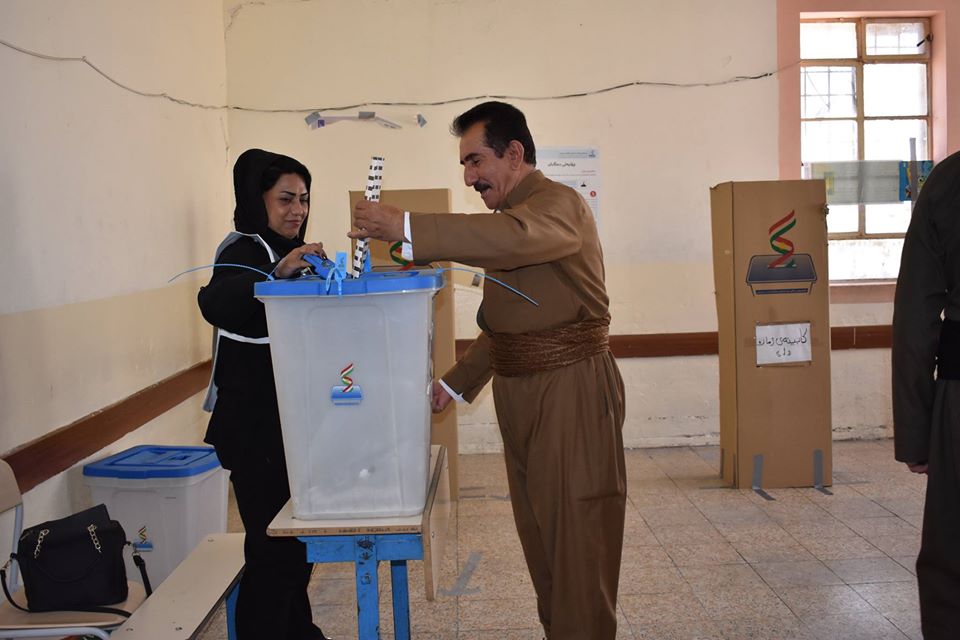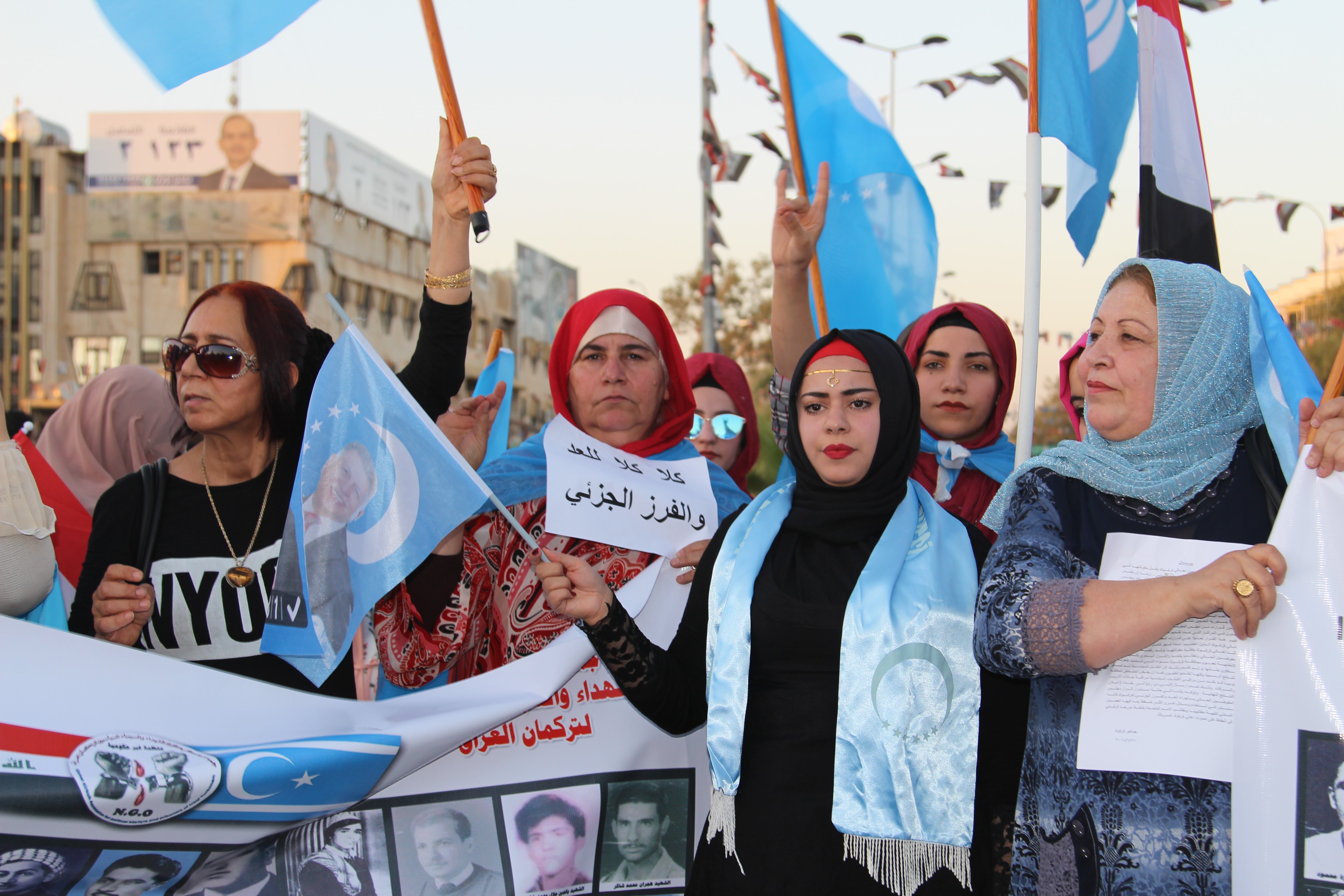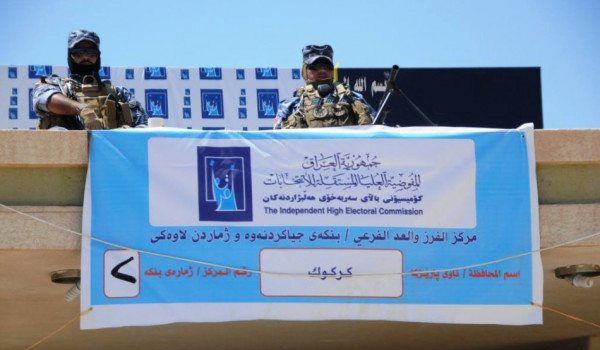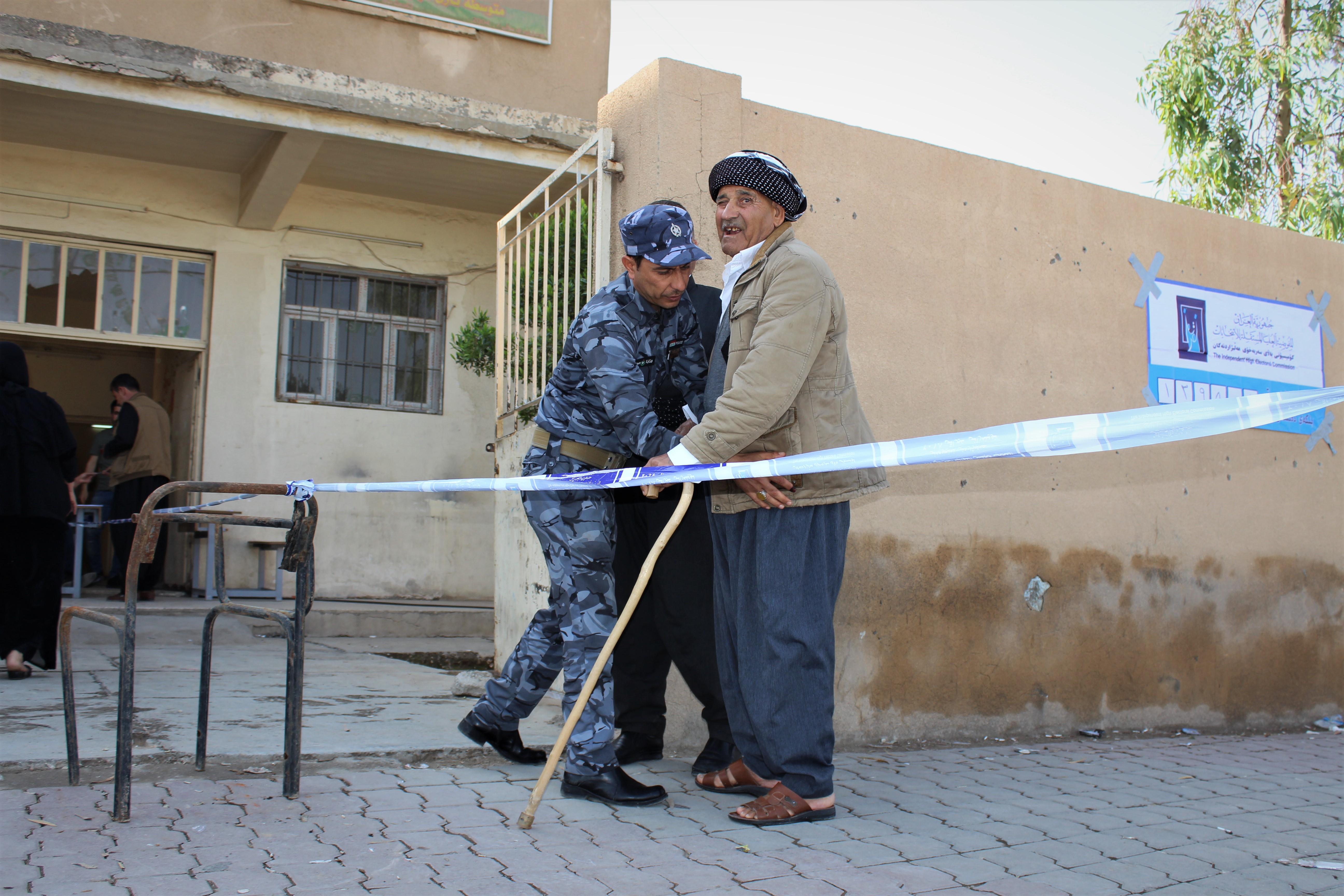The new changes inside the Independent High Electoral Commission (IHEC) office in Kirkuk opens an old wound; the changes once more escalate tensions between Kurds, Arab and Turkmen components and raise concerns over election rigging.
The changes are structural and include the appointments of new directors for head of the office and its sections, which have been disputed by the Arabs and the Turkmen of the city.
The Kurds of the city claim that allocating head of the office and other positions within the office to them is fulfilling their rights, but the Arabs and Turkmen see the new appointments as violations to their shares and insist that director of the office has to be given to them.
The newly formed Iraqi electoral commission has carried out the changes as the first step to kick off the preparations for the national and provincial elections in the city, which both lack a date, yet.
Arabs call for keeping a “balance”
The Arab parties in Kirkuk believe that there is no balance in the distributions of the positions of the IHEC’s office, which they claim that it paves the way for election rigging.
Mohammed Rayshai, the spoke person of the United Arabic Front (UAF), told KirkukNow that, “we feel uncertain toward the IHEC’s office [in Kirkuk] because the positions are once more exchanged between them, which was the main reason for fraud.”
The office was criticized for “its inabilities to hold” free and fair federal elections on May 12, 2018, when a Kurdish political party was accused of committing organized election fraud.
“We reject the changes. The distributions of the positions have to be in line with the will of the ethnic components and have to be balanced,” Rayashi said.
The distributions of the positions have to be in line with the will of the ethnic components
Rayashi claimed they will organize protests and announce strikes if their voices remain unheard, adding that they hold Kirkuk’s local administration and parliament members (MPs) accountable for the consequence of such changes.
These concerns are at a time when Iraqi is preparing for early national as well as provincial elections.
The UAF, in a press conference, rejects the new changes made to the office and claims that it is “cleansing” and taking their rights. The statement also says that they have been allocated only a position among the 15 positions in the IHEC’s office in Kirkuk, “which poses a threat when majority of the positions are given to an ethnic component, that dominates the office,” calling for the reconsideration of the changes in a way that the powerful positions are distributed equally among the ethnic groups that would prevents the possibilities of election rigging.
Kurds: We have not been given our full rights.
The Patriotic Union of Kurdistan (PUK), which is the strongest Kurdish party in Kirkuk and has been criticized the most, claim that the positions allocated to the Kurds in IHEC’s office partially meet their rights, not otherwise; receiving more positions.

Kirkuk, a man is casting his vote, May 12, 2018. Photo: KirkukNow
“We cannot wait to satisfy others, we have taken less of our rights, on one has done any favor for us,” said Ghazi Kirkuki, a member of the PUK leadership council.
Six positions have been allocated to the Kurds, which include head of the office, directors of couple of the sections as well as assistants to numerous different administrative rooms.
The PUK’s leader said that the Kurds have won half of Kirkuk’s federal parliamentary seats, so “we will not compromise on our rights and any violations to the Kurdish rights,” adding that the changes have been made without the political parties’ interference and that the decision have been made by the IHEC’s judges in Baghdad, which is under observations of the international organizations.
We will not compromise on our rights and any violations to the Kurdish rights
Kurds in Kirkuk have secured head of the office in the last successive Iraqi federal elections, who have been accused by the Turkmen and the Arab parties of elections rigging and changing the results.
The PUK’s MP in the Iraqi Council of Representatives, issued a statement against the Arabs’ and Turkmen disputes over the new structural changes in the office, claiming that, “no political party can interfere in the electoral commission’s affairs.”
“Such propaganda will make obstacles to early elections.”
The MPs also call upon the electoral commission not to fall under the influence of the demands of those political parties, and to perform their work professionally and transparently with the aim of organizing free and fair elections.
Turkmen want guarantee for free and fair elections
The Turkmen parties see the new structural changes of Kirkuk’s IHEC office as a possible way to commit fraud and demand the reconsideration of the decisions to guarantee holing free and fair elections in the city.

Kirkuk, Turkmen are protesting against the IHEC office, 2018. Photo: Karwan Salehi
The leadership of the Turkmen United Front (TUF) rejects all the new changes in a statement, in which they say that, “it appears the new commission take the same path of the old commission, which had a bad reputation because it hires people against whom there are evidence of involvement in election rigging.”
It appears the new commission take the same path of the old commission
“There is an attempt to recommit fraud committed in the last elections,” the statement says, “we are disappointed and hold the political factions, the government, the United Nations, the parliament accountable for such violations.”
The Turkmen in Kirkuk, who have consistently been a part of protests against IHEC’s office, have asked for the total replacements of the office’s members more than a time.
Taymur Abdul-Aziz Bayati, a member of the leadership council of Turkmen Eli party, told KirkukNow that, “the electoral commission has to be independent, but during the 2018 election, it turned out that KEHC’s office in Kirkuk was under the authority of a political party. That is why back then we asked for the resignation of the office’s staff members.”
The electoral commission has to be independent
Bayati said that he considers the new changes as “going back to square one” because it leaves no guarantee for free and fair elections and vanishes trust in elections in the province, adding that he suggests the replacement of head of the office with a Turkmen.
IHEC is concerned
IHEC issued a statement and expressed its concerns on the disagreement of the political parties with the changes and rejects that the positons have bene distributed based on political parties or ethnic groups shares.

Kirkuk, two police officers guard a polling station on the election day, May 12, 2018. Photo: KirkukNow
The commissions statement mentions that after receiving the names of 860 candidates nominated by the judicial councils of federal and regional governments, the integrity commission, the central bank, and the financial bureau, 337 nominees of them were elected for heads of the offices, and their sections, and rooms for the national and provincial offices across the country.
IHEC also insisted that the selection process of the candidates depended on merits, qualification and independency, not affiliation with political parties.
The former IHEC was dissolved as a way to address the demands of the social uprisings in the southern cities, mainly Baghdad, and a new IHEC was formed, which consists of numerous judges, whom appoint candidates for the national and the provincial offices.
“We got surprised and concerned when we saw the statements of some political parties, that contain incorrect information on the appointment process of the new employees.”
We got shocked and concerned when we saw the statements of some political parties
IHEC claims that the disagreements increase tensions, which will result in the delay of the preparations for early elections, which is one of the demands of the protestors.
The new Iraqi government, led by Prime Minister Mustafa al-Kadhimi, in its first cabinet meeting in early May, reaffirmed that holding a snap election is one of its priorities.
Not only that the appointment of the employees for IHEC’s offices did not rely on ethnic groups or political parties, but also none of them has been accused of any crime or corruption cases, IHEC statement says.
Election results throughout successive federal elections were disputed in the city of Kirkuk, in particular the results of 2018 elections, which were marred by allegations of fraud.





